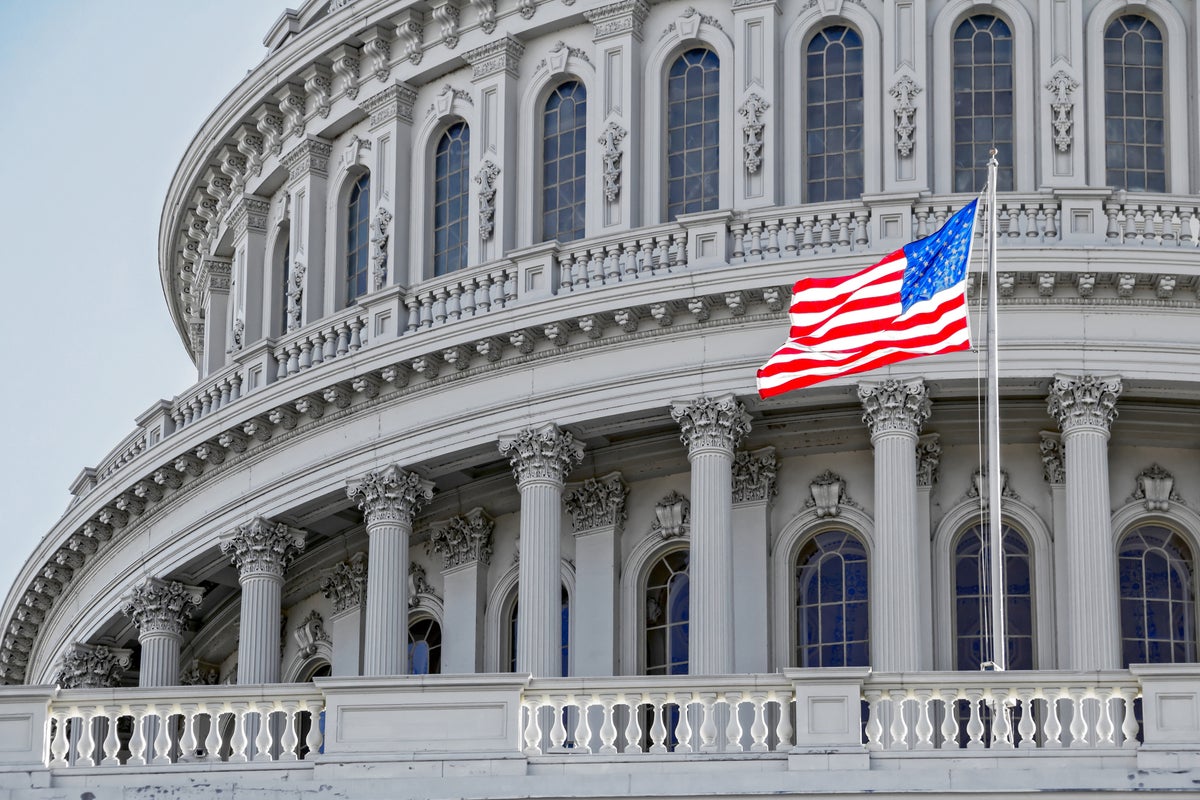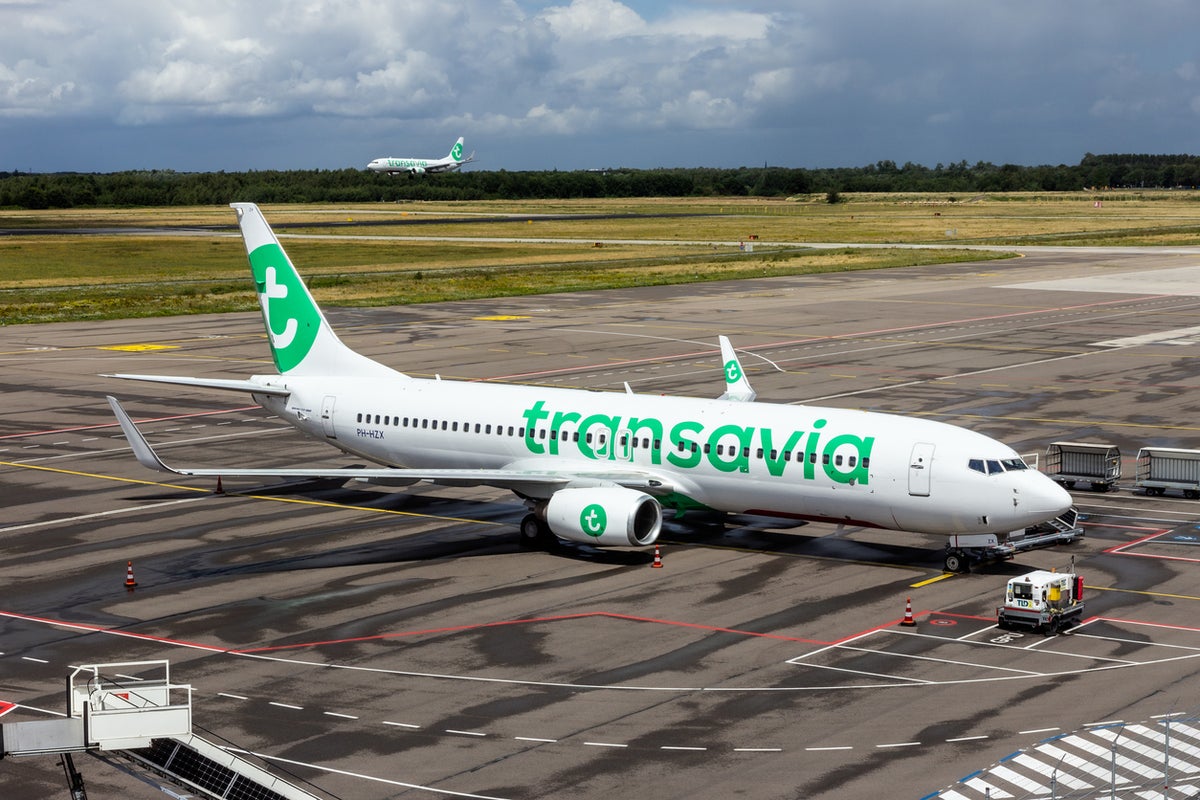Is it safe to travel to the USA? Travel advice after tourists detained in visa crackdown
Changes to immigration policy since the re-election of Trump have increased traveller anxiety surrounding detainment and deportation

Travellers have been warned to take USA visa requirements seriously after a wave of problems entering the country as the Trump administration cracks down on immigration.
Several countries have reiterated that foreign visitors who commit alleged visa violations, even accidental, risk arrest at the US border.
Cautions come after Rebecca Burke, a 28-year-old graphic artist from Monmouthshire, endured a 19-day detention in the US after a visa mix-up in February.
The Welsh woman was denied entry back into Washington after her incorrect tourist visa was rejected in Canada.
Rebecca was released back to the UK on 18 March, having been led onto the plane in chains “like Hannibal Lecter”.
As countries update travel advice for citizens planning to travel to the USA, is it safe to go and are tourists shunning stateside travel?
Read more: Germany and Britain issue warnings about traveling to America
What is happening in the USA?
Changes to US immigration policy since the re-election of Donald Trump have increased traveller anxiety surrounding detainment and deportation at border crossings and airports.
After taking office, President Trump ordered much tougher controls on “all aliens seeking admission to the United States,” demanding they are “vetted and screened to the maximum degree possible”.
Recently, reports of tourists being detained for visa infractions and heightened security screenings have raised further questions on the risk of US travel.
Even those with valid visas have expressed concerns that devices will be confiscated, social media accounts will be checked or that changes to gender policy will cause problems with passports and travel documents.
Electronic System for Travel Authorisation (ESTA) and visa application forms require that travellers declare their sex.
In January, an executive order from the State Department proposed a ban on the use of the “X” marker option in the sex field on passports for transgender and nonbinary people.
On 18 April, a federal judge blocked the Trump administration from enacting the policy to change gender markers on passports.
What is the latest Foreign Office travel advice?
The Foreign Office (FCDO) does not advise British travellers against going to the US and holidaymakers are unlikely to encounter any issues if they follow entry conditions.
However, FCDO travel advice on visa requirements when entering the US warns: “You should comply with all entry, visa and other conditions of entry.
“The authorities in the US set and enforce entry rules strictly. You may be liable to arrest or detention if you break the rules.
“If you’re not sure how these requirements apply to you, contact the US Embassy or a consulate in the UK.”
To enter the US your passport must be valid for the length of your planned stay and you must have either an ESTA or a visa.
What do other countries say?
Several countries have strengthened travel advice for citizens as policy changes take a toll on tourism in the US.
Germany
Germany recently updated its travel advisory to the US to emphasise that a visa or entry waiver does not guarantee entry to the country after several Germans were detained at the border.
Canada
The Canadian government’s latest travel advice update cautioned US-bound citizens that “the Government of Canada cannot intervene on your behalf if you do not meet entry or exit requirements for the United States”.
It adds: “U.S. authorities strictly enforce entry requirements. Expect scrutiny at ports of entry, including of electronic devices. Comply and be forthcoming in all interactions with border authorities.”
Canadians staying in the US for longer than 30 days will now be required to register with the US government. Travellers who fail to comply and register via an I-94 form or the new Form G-325R on the US Citizenship and Immigration Services (USCIS) website may face “penalties, fines, and misdemeanor prosecution”.
Finland
On 14 March, Finland warned citizens that “US authorities may refuse entry” for passports that have a different gender marker than that assigned at birth. Updated travel advice reads: “If the applicant's current sex on their passport is different from their sex confirmed at birth, the US authorities may refuse entry.”
Denmark
Denmark has similarly advised transgender citizens to contact the US embassy in Copenhagen before they travel amid concerns that Trump’s gender policies will create issues with travel documents.
“If your passport has the gender designation X or you have changed gender, it is recommended to contact the U.S. embassy prior to travel for guidance on how to proceed,” the updated Danish travel advisory page reads.
France
As of 24 March, French citizens are “strongly recommended” to consult the website of the United States Embassy in France before they travel. The Ministry for Europe and Foreign Affairs added: “In particular, for new visa or ESTA applications, it should be noted that a section has been added which requires, under the presidential decree of January 20, 2025, to indicate the ‘sex at birth’.”
Ireland
Ireland issued travel advice for transgender travellers that says: “ESTA and visa application forms to the US require travellers to declare their sex. The US authorities have indicated that this should reflect, what they term, the traveller’s biological sex at birth. Travellers whose sex on their passport differs from sex assigned at birth should contact the Embassy of the United States of America in Dublin for further details on specific entry requirements.”
The Netherlands
The Dutch foreign ministry warns: “Please note that laws and customs in the US towards LGBTQ+ persons may differ from those in the Netherlands.”
It adds: “The US authorities only accept a M or F (male or female) as a gender indication. This was determined by the US government on January 20, 2025. Based on this, you must indicate your gender at birth when applying for an ESTA or visa.”
What does the US government say?
US Customs and Border Protection (CBP) says it “does not discriminate based on race, ethnicity, religion, or political affiliation, nor do we retaliate against individuals for expressing their views”.
In an online statement, it said: “Claims that CBP is searching more electronic media due to the administration change are false. CBP’s search numbers are consistent with increases since 2021, and less than 0.01 per cent of travelers have their devices searched.
“These searches are conducted to detect digital contraband, terrorism-related content, and information relevant to visitor admissibility, all of which play a critical role in national security.”
Are changes by the Trump administration impacting travel to the US?
Simon Calder, travel correspondent of The Independent, has checked the data to answer some key questions. These are his responses.
Did we have a “Trump Slump” in the first term?
No. Lots of people thought we might, but the figures show the British were undeterred.
How deep is the “Trump Slump” this time around?
I have checked the official data from the US International Trade Administration. As of 23 April, it reveals a 17 per cent year-on-year slump in western Europeans visiting the United States in March 2025.
From Germany and Ireland, the reduction is over a quarter. As a result, airlines are slashing summer prices to fill planes.
Normally, nonstop airfares between the UK and the US soar towards £1,000 return in July and August. But right now, return flights in June from Manchester to New York and from Gatwick to Orlando are on sale for well under £500 return.
What’s driving it?
1. Fear of being deported straight back where you came from.
2. Unhappiness with the president’s public proclamations, from Ukraine to Gaza to Greenland and Canada.
Does this create travel opportunities?
Yes. Anyone who takes advantage of these fares can expect cheaper accommodation and rental cars. While figures for the biggest US source market, Canada, have not been revealed yet, for Mexico, visitors are down a quarter. It’s going to be a buyers’ market.
Are airlines concerned?
A concern among airlines and the US travel industry is that we are only at the beginning of a much deeper slump. Many of the travellers who are taking US holidays now and over the next few months will have committed to those trips before Donald Trump took over in the White House in January.
One dramatic indicator of how demand is dwindling was the sudden decision by Air Canada to launch flights this summer from its home city of Montreal to Edinburgh. Normally, tickets for a new route like that would go on sale almost a year ahead. To announce the link just three months before take-off suggests the Canadian carrier is looking with alarm at forward bookings to the US and is thinking: “Where can we fly our planes and hope to fill them up?”
Read more: Airlines slash flight prices to US after anti-Trump backlash hits tourist numbers
Can I cancel my US holiday or flight for a refund?
The Foreign Office does not advise against any travel to the US, so there will be no exceptional circumstances allowing for a full refund on cancelled trips.
The conditions for cancelling your trip will be dependent on your holiday provider, so it’s best to contact them if you’re looking to postpone. There is no obligation for companies to refund bookings if you want to cancel, and you will not be able to claim travel insurance due to safety concerns unless FCDO advice changes.
For more travel news and advice, listen to Simon Calder’s podcast

 ValVades
ValVades 































